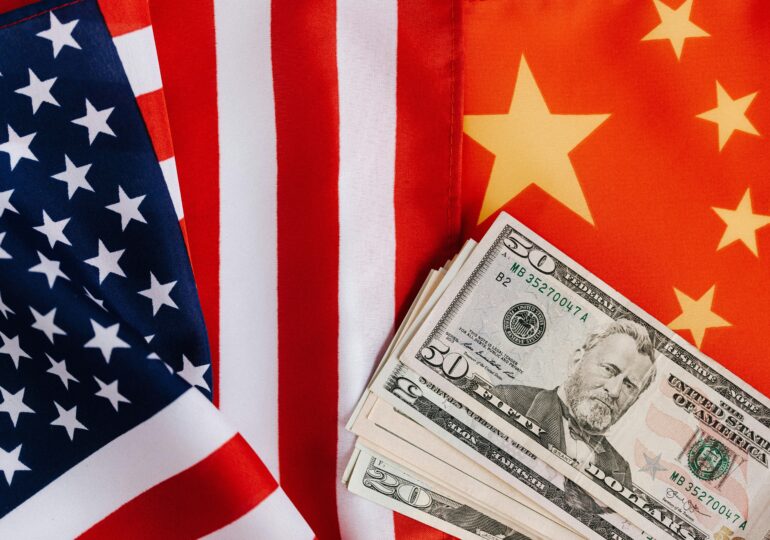The Trump administration announced on Saturday that it will exempt technological products such as iPhones, personal computers, and chips from a large portion of the new 145% tariffs imposed on China. However, for most businesses in the US, orders from China are being canceled, and Chinese goods in transit risk being abandoned.
Without a broader suspension of the trade war with China, damages will soon become „irreversible” for American businesses, according to a retail expert. The most affected sectors will be furniture, toys, clothing, footwear, and sporting goods.
Cancellations of orders and abandonment of goods from China are rapidly becoming a norm in this trade conflict, say supply chain directors, while companies from all American industries pause exports, suddenly hit by these tariffs, writes CNBC News.
- "Furniture manufacturers in China are no longer receiving orders from American importers at all, and we see the same situation with toys, clothing, footwear, and sporting goods," said Alan Murphy, founder and CEO of Sea-Intelligence.
- "Almost everything is on hold regarding trade relations with China," said Alan Baer, CEO of OL USA.
- "The total 145% tariff imposed by Trump on Chinese imports would halt most commercial exchanges between the US and China. Some products, which have no substitutes, may continue to be imported, but largely, this tariff completely cuts off the commercial relationship," said economist Erica York from the Tax Foundation, Thursday, in an intervention on CNBC.
As last week made it clear that China will remain the primary target of the Trump administration's tariff policy - after other countries were given a 90-day break - the message conveyed was that goods with low profit margins can no longer be sustainably produced in China.
"Products with higher margins and high technical complexity, such as electronics, machinery, medical and pharmaceutical equipment, cannot be easily moved elsewhere, as their production requires significant time and capital," said Murphy.
Prior to the exemption granted to technology, he stated that manufacturers of these goods were analyzing which components could be sourced from other places while reducing their stocks in the US. There is a concentrated effort to move production to Southeast Asia, especially to Vietnam or India. Additionally, considerations are being made to reduce prices for exports to Europe or even to close production lines.
Heavy Burden to Bear
Stephen Lamar, CEO of the American Apparel & Footwear Association, stated that sudden policy changes and high tariffs disrupt supply chains to an unprecedented level since the pandemic.
"With prohibitive levels of tariffs imposed on American imports from China, many companies have no choice but to cancel orders. Constant fluctuations mean that new costs cannot be predicted until the goods arrive at the port, and high tariffs generate bills that are impossible to pay. It is a burden that a small business cannot sustain," Lamar said.
Lamar mentioned that, in the absence of alternative sources for many of these companies, especially the small ones, the sudden lack of orders will immediately lead to sales losses and widespread product shortages. "There is an urgent need for an extension of the pause in the trade war with China for American imports before the damages become irreversible," he added.
Logistics Giant Hit Hard
Integrated logistics giant Maersk warned that, regarding maritime transport, the decline in bookings, along with the possibility of imposing construction taxes on "Chinese" vessels starting next week, will lead to a "massive restructuring of all liner services to North America."
"And it will take months to resolve the chaos, with congestion and transport tariff increases that will persist for months," Maersk conveyed to clients.
Murphy said that among all China-based manufacturers his company has spoken with, none are actively considering moving production to the US, partly due to the lack of clarity on the administration's ultimate goal.
"The main concern is the total uncertainty about the real objective of the Trump administration. No one will make massive investments in American production if tariffs are just a negotiating tactic. If the administration truly aims for the reindustrialization of the US, then the long-term plan must be clear, without references to '4D chess' or 'The Art of the Deal,'" he added. "The yo-yo tactic of daily tariff changes only creates chaos and uncertainty."
Keeping goods on hold is a method to reduce the impact of tariffs. Logistics providers can offer customs warehousing, allowing goods to enter the US without immediately paying tariffs. Using free trade zones and other transportation delay methods allows for a temporary deferral of fees.
"The current situation is unprecedented," said Karsten Kildahl, Chief Commercial Officer at A.P. Moller-Maersk.
Abandoned Goods
The fate of abandoned goods - cargoes that are not claimed or paid for by the carrier or the customs broker on behalf of the client - is unclear, and the rules vary from one port to another and depending on the contract.
Port officials told CNBC that they are usually not notified about abandoned goods. According to the New York terminal agreement, goods remaining on the terminal for more than 30 days will be deemed abandoned and sold to cover storage fees. The final responsibility for these costs usually depends on transport contracts. "If the transport document has not been transferred to the consignee, the shipper is responsible. They can decide to re-export, destroy, or donate the goods."
Shippers usually prepare an "abandonment letter" for US customs authorities so that goods can be sold or auctioned. The revenues from the sale cover expenses (container, chassis), and the remainder goes to the terminal.
The terminal can move abandoned goods to a customs warehouse or sell them directly from there. There is a market for abandoned goods.
Maersk stated that many shippers are adopting a "wait and see" approach, and in a recent message to clients, it stated that until the situation is clarified, clients will remain cautious about inventory levels and seek to increase supply chain flexibility.

